US Affirms Continued Cooperation With Israel Against Iranian Threats
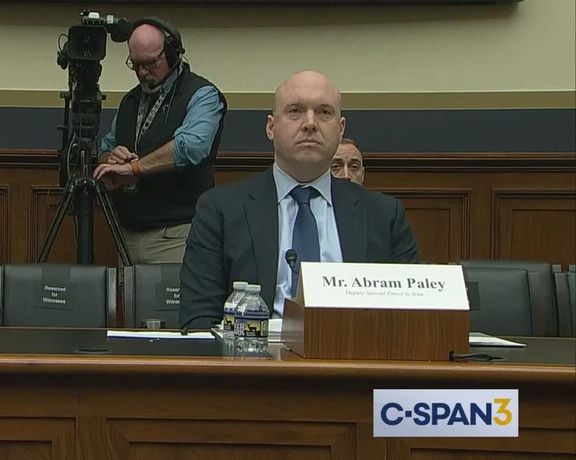
A US official stated on Wednesday that Washington will persist in its close coordination with Israel to counter the full spectrum of Iranian threats amid the war in Gaza.

A US official stated on Wednesday that Washington will persist in its close coordination with Israel to counter the full spectrum of Iranian threats amid the war in Gaza.
With Iran's proxy the Houthis directing attacks at Israel and now blocking the Red Sea trade route, during a visit to Israel, Abram Paley, the Deputy Special Envoy for Iran, posted on his X account, "We will continue our close coordination to counter the full range of Iranian threats."
The US has announced it has formed a coalition of 10 nations to counter the threats from Yemen. Meanwhile, on Israel's northern border, Iran's largest proxy, Hezbollah, continues its assault on the Jewish state. Both issues are believed to have been high on the agenda in the US-Israel talks.
The Houthis claim the aggression is in defense of the war in Gaza, a show of support to the Palestinians amid the most brutal war since Iran-backed Hamas took control of the strip. It has led to renewed calls for the Houthis to be redesignated a terror group.
Since October 7, when Iran-backed Hamas invaded Israel, hundreds of thousands of Israelis have been displaced from their homes along both the Gaza and Lebanon borders. Hezbollah, reportedly armed with over 120,000 rockets with Iranian support, poses a significant threat, capable of overwhelming Israel's Iron Dome defenses and triggering a potentially devastating war for both sides.
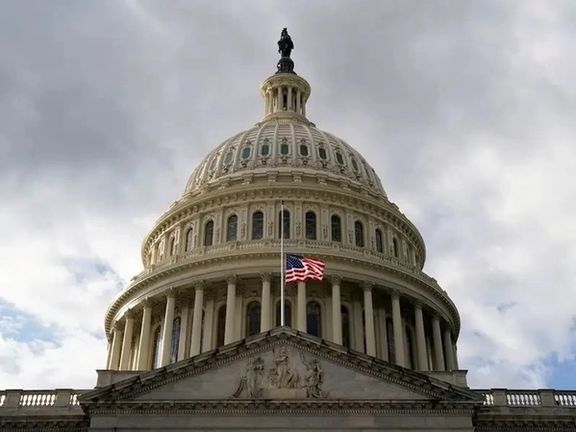
In a letter to the US Treasury Department, 11 members of the House of Representatives warned against Iran’s illicit strategies to circumvent oil sanctions.
Iran’s actions are “compromising the safety and integrity of the international maritime industry and threatening our national security interests,” read the bipartisan letter.
Iran-backed Houthis have been attacking shipping in the Red Sea since mid-November, endangering lives and international commerce.
The representatives added that the Islamic Republic is on the verge of reaching its pre-sanctions revenues with selling 1.5 barrels per day, a number which is unprecedented over the past five years.
Buying 1.05 barrels per day, China is still the main customer of Iranian oil, the letter went on to say.
The representatives cited United Against Nuclear Iran’s recent warning that 370 foreign-flagged “ghost ships” are suspected of contributing to Tehran’s circumvention of oil bans over the past two years.
“This number is a 300-unit increase from its previous finding in November 2020,” said the letter.
The representatives also called for sanctions against the ghost ships involved in Iran’s illicit oil transfer.
Mohsen Khojasteh-Mehr, the CEO of the National Iranian Oil Company announced on Tuesday a 60% growth in the country's oil production over the past two years in spite of global sanctions.
According to a Congressional hearing earlier in the month, Iran has quadrupled its oil revenues since President Joe Biden took office, helping the regime better fund its malign activities.
“The Biden administration has taken a consistently weak approach to enforcing the energy sanctions that would have the strongest economic impact on Russia, Iran and Venezuela,” said Rep. Blaine Lutkemeyer, chairing the hearing.

The IRGC was plotting to assassinate two Iran International television anchors in London in 2022 amid Iranian anti-government protests, UK’s ITV has revealed.
The plan was foiled because the man hired to do the job turned out to be a ‘double-agent’ working for a western intelligence agency. He would relay all information to his handler and has now shared some details with ITV.
Based on irrefutable evidence –seen and verified by ITV and multiple officials– the plot was commissioned and signed off by Mohammad Reza Ansari, the IRGC commander in charge of assassinations outside Iran.
Ansari is the ‘mastermind’ behind failed plots to assassinate former US officials Mike Pompeo and John Bolton –for which he’s been sanctioned by the US treasury. He is based in Syria and is reported to have links with the family of the Syrian dictator Bashar al-Assad.
According to ITV, Ansari hired and directed the hitman (Ismail) through another Assad associate, Mohammad Abd al-Razek Kanafani, requiring him first to use a car bomb and then a ‘quiet’ way to kill his targets: “simply stab [them] with a kitchen knife.”
The plot was cynically codenamed the “wedding”. The targets, Sima Sabet and Fardad Farahzad, were “bride” and “groom”. They did not know about the details of the plot until told by ITV during the making of the report.
Ismail, a people-smuggler turned IRGC operative and then double-agent, was promised $200,000, a new identity and safe passage to Iran via Syria.
This seems to have become the IRGC’s preferred method recently, using criminals rather than sympathizers or members of affiliated, non-Iranian militant groups, as was the case years back.
In November 2022, Volant Media, the parent company of Iran International, said that two of its journalists had been notified of direct threats. It said in a statement the Metropolitan Police had formally notified both journalists that these threats represented an imminent, credible and significant risk to their lives and those of their families. Following the significant escalation in Iranian state-backed threats and advice from the London Metropolitan Police, Iran International TV announced in February that it reluctantly and temporarily closed its London studios and moved broadcasting to Washington DC. After months of hiatus in broadcasting from the UK, the network relaunched operations from a new London building in September.
Since its inception, the Islamic Republic of Iran, has been engaged in such plots against Iranian opposition in exile. Some attempts have been more successful than the others, but the regime has never ceased threatening and targeting those who dare speak against it, even those ostensibly safe in western Europe or the United States.
Many Iranian activists believe that the failure of the host states to exact a high price for such atrocities have contributed to its continuation. Those arrested, even found guilty, have often been handed back to Iran in ‘exchanges’ –that, in turn, have been made possible through hostage-taking.
The most recent example is the release of Asadollah Assadi, a former attaché at the Iranian embassy in Austria, who was convicted in Belgium for plotting to bomb a gathering of Iranian opposition in France in 2018. He went back to Iran triumphantly in a deal to bring back Belgian aid worker Olivier Vandecasteele who was taken hostage in Iran in 2022 and sentenced to 40 years in prison.
According to ITV, the hitman (Ismail) was told the two presenters had to be targeted because they were causing the Iranian regime “a lot of humiliation in the media.”
“They accuse Iran of committing any kidnap or assassination [on television] and we must finish them and make an example of them… so anyone who will take their place in the channel will learn a lesson from what happened to them,” Iranian spies told Isamil.
The Iranian regime has been attacking Iran International ever since its launch in May 2017. It’s been called a “terrorist organization” and is deemed a “public enemy.”
In September 2023, Iran’s Intelligence Minister appeared on state television to reiterate that the regime would not refrain from “invasive security measures” against Iran International to show that “no terrorist media will be safe.”
“We believe that Iran International is a terrorist network, and naturally we deem it our duty and mission to act against them wherever and whenever we deem appropriate,” he said.
The ITV report Wednesday was broadcast only a few hours after the jury of a UK court returned a guilty verdict for a suspect gathering information on Iran International's London headquarters for a possible terror attack.
Chechnya-born Magomed-Husejn Dovtaev was detained by officers from London’s Metropolitan Police Counter-Terrorism Command in February 2023. He was charged with attempting to collect information "likely to be useful to a person committing or preparing an act of terrorism."
The final verdict will be issued by the court on Friday.
“This trial was a reminder of the threats journalists and news organizations face,” Iran International said in a statement after the verdict was announced. “We will not be cowed by threats. Our journalists will continue to provide the independent, uncensored news the people of Iran deserve,”
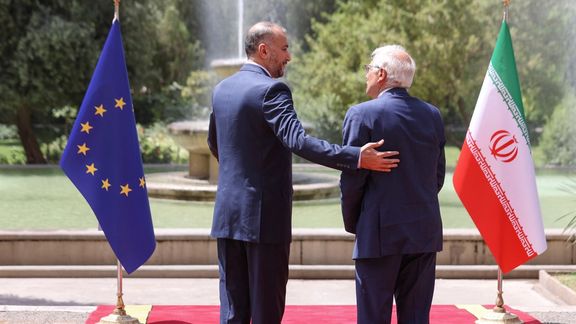
A German paper reported on Monday that a classified EU document states that IRGC can be sanctioned as a terrorist organization in Europe, despite assertions to the contrary by some politicians.
German lawmaker Norbert Röttgen has accused his country’s foreign minister, Annalena Baerbock, of lying to the international community that the IRGC cannot be outlawed in Europe.
In a significant escalation of the sparring between Röttgen and the Green party controlled foreign ministry, the Christian Democratic party MP took to X on Monday to announce: “Baerbock has been deceiving the public for almost a year and is deliberately telling a untruth in the Bundestag regarding the expert opinion report on the terrorist listing of the Revolutionary Guards. This in no way says that listing is currently not possible.”
Baerbock, who claims to have a “feminist foreign policy,” has mirrored the comments of EU foreign policy chief Josep Borrell for nearly a year that "as of now, we don't have legal grounds in the EU to list the Revolutionary Guards as a terrorist organization."
Baerbock, whose Green party has faced criticism over the years for embracing an appeasement policy toward the clerical regime in Tehran, argued that an expert opinion of the European Council lawyers prevented the IRGC from being sanctioned.
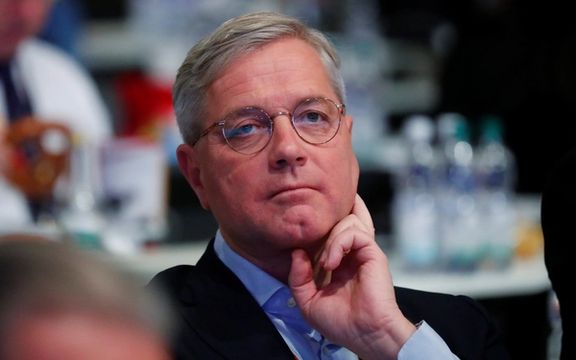
Röttgen linked in X post to an article in the left-wing German paper Die Tageszeitung (known in Germany as taz) that reported it obtained a classified EU expert opinion that established Baerbock lied to the international community.
According to die taz, the EU expert opinion states the legal service of the European Council determined that legal decisions outside the EU determining that the IRGC engaged in acts of terror could be used as a basis for banning it. “If the Council relies on a decision of a third country, it must ensure that this decision was taken in compliance with the rights of the defense and the right to effective legal protection,” the opinion reads.
Borrell appeared to have also misled the international community in January, when he claimed that an EU legal decision is necessary to designate the IRGC as a terrorist entity. Röttgen and counter-terrorism experts such as Matthew Levitt have mounted significant evidence to show that Borell and Baerbock are not on solid ground with their arguments against a ban of the IRGC.
The German paper asked a number of legal experts for their assessment of the classified EU expert opinion. “The positions of the legal service do not provide a convincing justification against the terrorist listing. The impression is that the federal government is hiding behind weak legal arguments,” said Matthias Herdegen from the University of Bonn.
The EU’s classified legal opinion presented legal verdicts from the US in 2020 and 2018 that showed the IRGC was responsible for blowing up the Khobar Towers in Saudi Arabia in 1996. However, the EU said the cases from Khobar are not current enough to form the basis for a ban of the IRGC.
Christian Marxsen, Professor of Public Law and International Law at the Humboldt University in Berlin, told die taz, “The report discusses the legal requirements for listing as a terrorist organization…there is no statement in the report as to whether there are other points of reference – for example further court or administrative decisions from other countries – for such a listing.”
Iran International reported in late November that a German court convicted a Pakistani man in 2017 who was paid by the IRGC to engage in an assassination attempt of pro-Israel advocates.
The Quds Force—a part of the IRGC—paid Pakistani Syed Mustaf at least 2,052 euros from July 2015 to 2016 to spy on Jewish and Israeli institutions and carry out the assassination plot. The case of Mustaf could be used by the EU to outlaw the IRGC, according to experts.
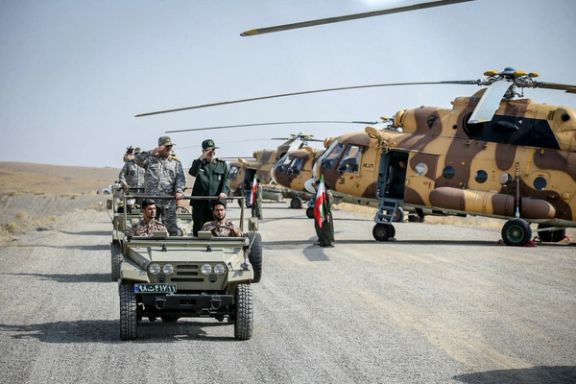
The taz reported that “There are numerous voices in and around the Foreign Office who reject the Revolutionary Guard's terrorist listing.” One voice is Guido Steinberg who is a Senior Associate at the Middle East and Africa Research Division of the German Institute for International and Security Affairs (SWP).
Steinberg told the German magazine Stern in July that he is against the listing of the IRGC as a terrorist organization because the IRGC is a normal military force. This is an argument that Tehran often uses despite the fact that the IRGC has a large intelligence organization engaged in domestic repression and also has its own espionage network abroad.
The US government classified the IRGC a terrorist entity in 2019.
The German Institute for International and Security advises the German foreign ministry and has been embroiled in pro-Hamas and antisemitism scandals this year. In July, Israel’s embassy in Berlin slammed the institute’s researcher Muriel Asseburg for suggesting in an interview with a hardcore anti-Israel activist that terrorism attacks against Israelis can be dismissed as not significant and there should be support for Palestinians' right to "violent resistance" against the "Israeli occupation.”
The German Institute for International and Security has been plagued by its efforts to promote a partnership with Iran’s regime. In 2008, a Wall Street Journal opinion article stated Volker Perthes, the former director of the controversial institute has “been lobbying for more than two years for a ‘strategic partnership’ with a Holocaust-denying regime that sponsors international terror and suppresses its own people.”
Press queries sent to Baerbock’s spokesman Sebastian Fischer and spokeswoman, Tittel, as well as to German interior minister spokesman Björn Bowinkelmann ,were not returned. Iran International phone calls to both ministries were not answered.

Ye-One Rhie, a German MP and a political supporter of Iranian rapper Toomaj Salehi, has issued a call for his immediate release.
In an exclusive interview with Iran International, Rhie expressed profound concern for Salehi's well-being, highlighting the lack of information about his current whereabouts.
Salehi, 33, was re-apprehended by plainclothes individuals on a street in Babol, northern Iran in late November. His arrest reportedly involved severe physical abuse, including beatings with the butts of rifles and pistols, as documented on his social media page.
Rhie expressed fears the star was badly beaten. "It's been going on for a couple of weeks now, and we don't know anything about him being transferred to a regular section, even before this new arrest when he was released on bail briefly."
Before the latest arrest, Salehi had spent over a year in prison, including 252 days in solitary confinement, before being released on bail on November 18th. His recent re-arrest sparked a social media campaign with over 75,000 mentions of Toomaj Salehi across various platforms.
Rhie, expressing frustration with the lack of information, urged diplomatic intervention. "What I'm demanding once again is that I get access to him, that we get to talk to him, to have a video chat at least so we can make sure that he is OK," she said. Rhie emphasized the need for proof of Salehi's well-being and called for access to a lawyer.
Responding to the question of Salehi's brief release on bail, Rhie said, "Nobody knows why the Iranian regime is doing what they are doing. Maybe they thought that they scared him off so much that he would go out and be quiet."
Salehi gained prominence for his protest songs addressing social issues and government injustices in Iran. In October 2022, Salehi's initial arrest was a component of a wider campaign targeting political adversaries of the regime.
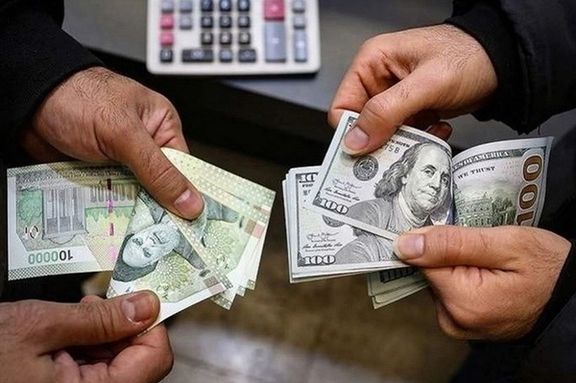
Iran’s currency, rial, rose against major currencies on Wednesday after reports last week said Tehran had used some of its unblocked funds kept in Oman.
The rial broke through the psychological barrier of 500,000 per dollar, closing at 49,800 after a gradual rise this week. Although the change was around one percent, it was the first time since early October the rial broke through the 500,000 threshold.
The rial sharply strengthened in June when for the first time the United States offered Iraq a waiver for the release of $2.7 billion of Iranian funds frozen because of Washington’s sanctions. Later the waiver increased, allowing Iraq to send around $11 billion to Oman, where Iran can access the funds, presumably to import non-sanctionable goods.
Iraq imports gas and electricity from Iran but due to US banking sanctions imposed on Iran, could not pay its debt in hard currencies until this June.
The Biden administration released another $6 billion of Iran funds in September that was blocked in South Korea. Five American dual nationals were released from Iranian prisons in exchange for what some said was history’s largest ransom. It is not clear why the Biden administration released $11 billion from Iraq. A large part of the money was unblocked after the Hamas attack on Israel. Iran is the top financial and military backer of the Palestinian militant group.
The rial has fallen 12-fold since 2018, when the Trump administration withdrew from the 2015 nuclear deal with Iran and imposed ‘maximum pressure’ sanctions.